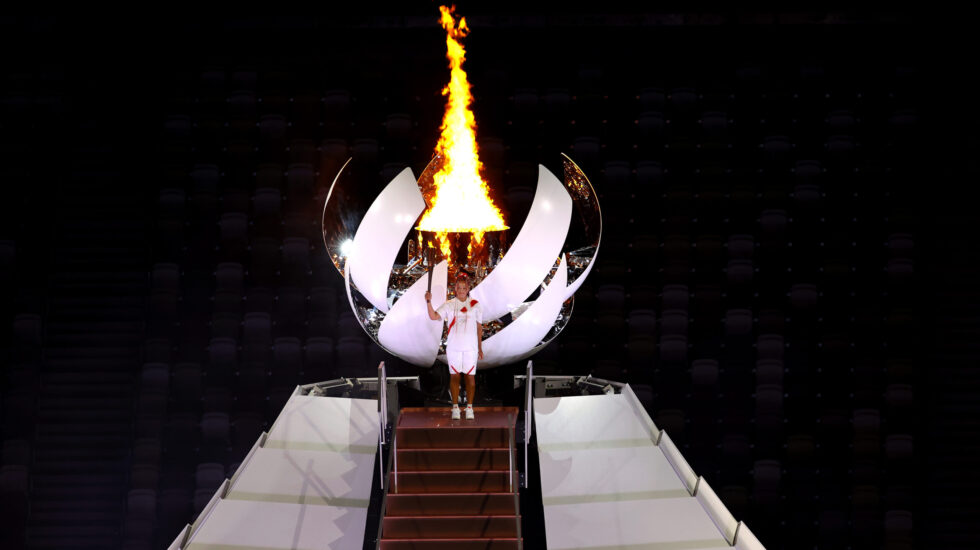On Friday, tennis star Naomi Osaka climbed atop a sculpture inspired by Mount Fuji and lit the Olympic cauldron. With that, the 32nd Summer Olympics were officially underway – one year delayed and shrouded in controversy as host city Tokyo struggles with a resurgence of COVID-19.
Opening Ceremonies are usually big budget spectacles imbued with grandeur and optimism. But this year’s version was a muted affair. The world’s best athletes paraded through a near empty stadium and waved awkwardly at unoccupied seats; only a small number of dignitaries and journalists were allowed to watch the festivities in person.
“The evening included a pause to remember the millions of lives lost, a moment of silence in a mostly deserted stadium that was already silent,” reports The New York Times.
“Today is a moment of hope. Yes, it is very different from what all of us had imagined,” IOC President Thomas Bach said. “But let us cherish this moment because finally we are all here together.”
Outside the stadium, protesters gathered to call for the cancellation of the Games. New infections of COVID-19 have been rising across Japan since late June. Only 23% of the population is fully vaccinated. According to The Wall Street Journal, “over 100 people in Japan involved in the Olympics have tested positive since the beginning of July, including 11 athletes. U.S. tennis player Coco Gauff is among those who have had to withdraw because of infection.”
The Associated Press provides more details:
The lovely national stadium can seem like an isolated militarized zone, surrounded by huge barricades. Roads around it have been sealed and businesses closed.
Inside, the feeling of sanitized, locked-down quarantine carries over. Fans, who would normally be screaming for their countries and mixing with people from around the world, have been banned, leaving only a carefully screened contingent of journalists, officials, athletes and participants.
Olympics often face opposition, but there’s also usually a pervasive feeling of national pride. Japan’s resentment centers on the belief that it was strong-armed into hosting — forced to pay billions and risk the health of a largely unvaccinated, deeply weary public — so the IOC can collect its billions in media revenue.
But Olympic organizers insist the Games can be a reprieve from a global pandemic. From NPR:
The ceremony preached a message of unity in adversity while showcasing Japanese traditions and culture — traditions that include anime and video games. Japanese celebrities performed and the emperor of Japan also appeared.
Team U.S.A.’s Parade of Nations contingent was led by the flag-bearers Sue Bird, a highly-decorated basketball player, and Eddy Alvarez, a former speed skating medalist who is now competing on the U.S. baseball team.
U.S. first lady Jill Biden and French President Emmanuel Macron were among the few high-profile foreign spectators.
In an open letter to the U.S. team, Biden wrote:
Your entire nation is cheering you on and we are grateful for what you’ve given us: the chance to come together in common awe and appreciation for your accomplishments and the shared joy of rooting for our country on the edge of our seats.
In these moments, we are more than our cities or states or backgrounds. We are more than our jobs or our political parties. We are united. We are all, first and foremost, Team USA.



